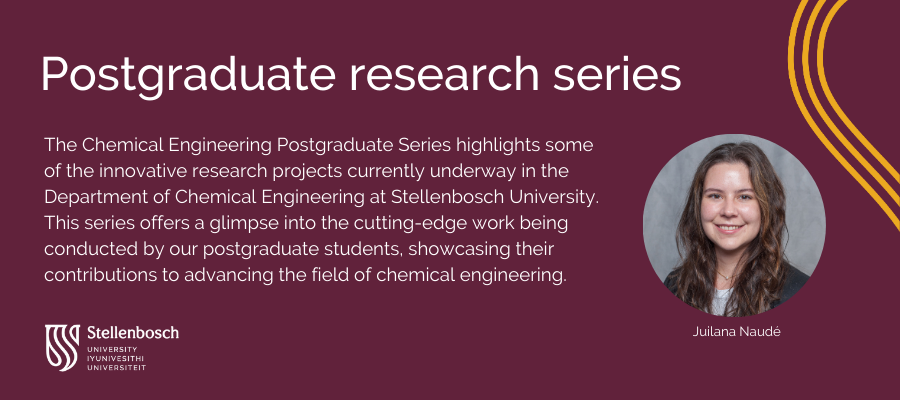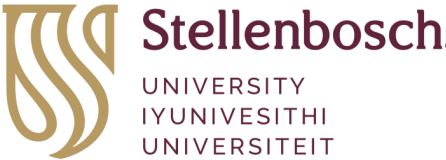
Juliana Naudé, a master’s student in Bioresource Engineering at the Department of Chemical Engineering at Stellenbosch University, is conducting research on the valorisation of waste paper through bioethanol fermentation and anaerobic digestion (AD). Her project aims to identify which of four types of waste paper are most suitable for these bioconversion processes and to optimise their use in submerged fermentation configurations. The goal is to enhance process parameters such as ethanol concentration, yield, and volumetric productivity, ultimately employing a biorefinery concept where fermentation residues are utilised in AD.
The research objectives focus on determining the suitability of the four waste paper types as feedstocks for bioconversion. This involves screening the waste paper using enzymatic digestion, small scale fermentation, small scale AD and characterising them through compositional analyses. Juliana’s work further involves identifying the most effective fermentation configuration and optimising process parameters, followed by anaerobic digestion of both raw substrates and fermentation residues. The study utilises yeasts capable of fermenting both hexose sugars (glucose) and pentose sugars (xylose), along with cellulase secretion.
South Africa has maintained a waste paper collection and recycling rate of over 60% since 2017 (PAMSA, 2023). However, the capacity of several landfills continues to decline, with some expected to have less than 30 years of capacity remaining, and others as little as 10 years, as reported in 2018 (Department of Environmental Affairs, 2018). Although waste paper collection and recycling efforts persist, the presence of additives such as aluminum, plastic laminates, and surface coatings in certain paper streams disrupts recycling processes, rendering some waste-paper streams unrecyclable (Ciobanu et al., 2024; PAMSA, 2023).
Juliana’s study focuses on these difficult-to-recycle waste paper streams, which are currently being used as part of her research. Conventional treatment methods for unrecyclable waste paper include exportation, landfilling, and incineration – practices that contribute to air and water pollution (Department of Environmental Affairs, 2018). By contrast, fermentation and AD offer alternative treatment pathways that reduce reliance on traditional methods while producing high-value chemicals and alternative energy sources.
Biogas generated from AD can be utilised for cooking or as a heat source and can be further enriched to biomethane for use as automotive fuel. Additionally, bioethanol produced through these processes is a valuable chemical that can serve as a feedstock chemical in the pharmaceutical industry or as a fuel additive. By sequentially integrating ethanol fermentation and AD, where residues from fermentation are processed in AD, the project leverages a biorefinery concept. This approach not only maximises the valorisation of waste paper but also enhances the sustainability of the processes by ensuring that residues and wastewater from fermentation are further utilised in AD, additionally, the biogas can be used as a source of process energy for distillation or in a combined heat and power (CHP) configuration.
Juliana’s research highlights the potential of innovative bioconversion processes to address waste management challenges while contributing to the production of valuable chemicals and sustainable energy solutions.
Supervisor: Prof. Eugéne van Rensburg – Department of Chemical Engineering, Stellenbosch University
Co-supervisor: Prof. Johann Görgens – Department of Chemical Engineering, Stellenbosch University



